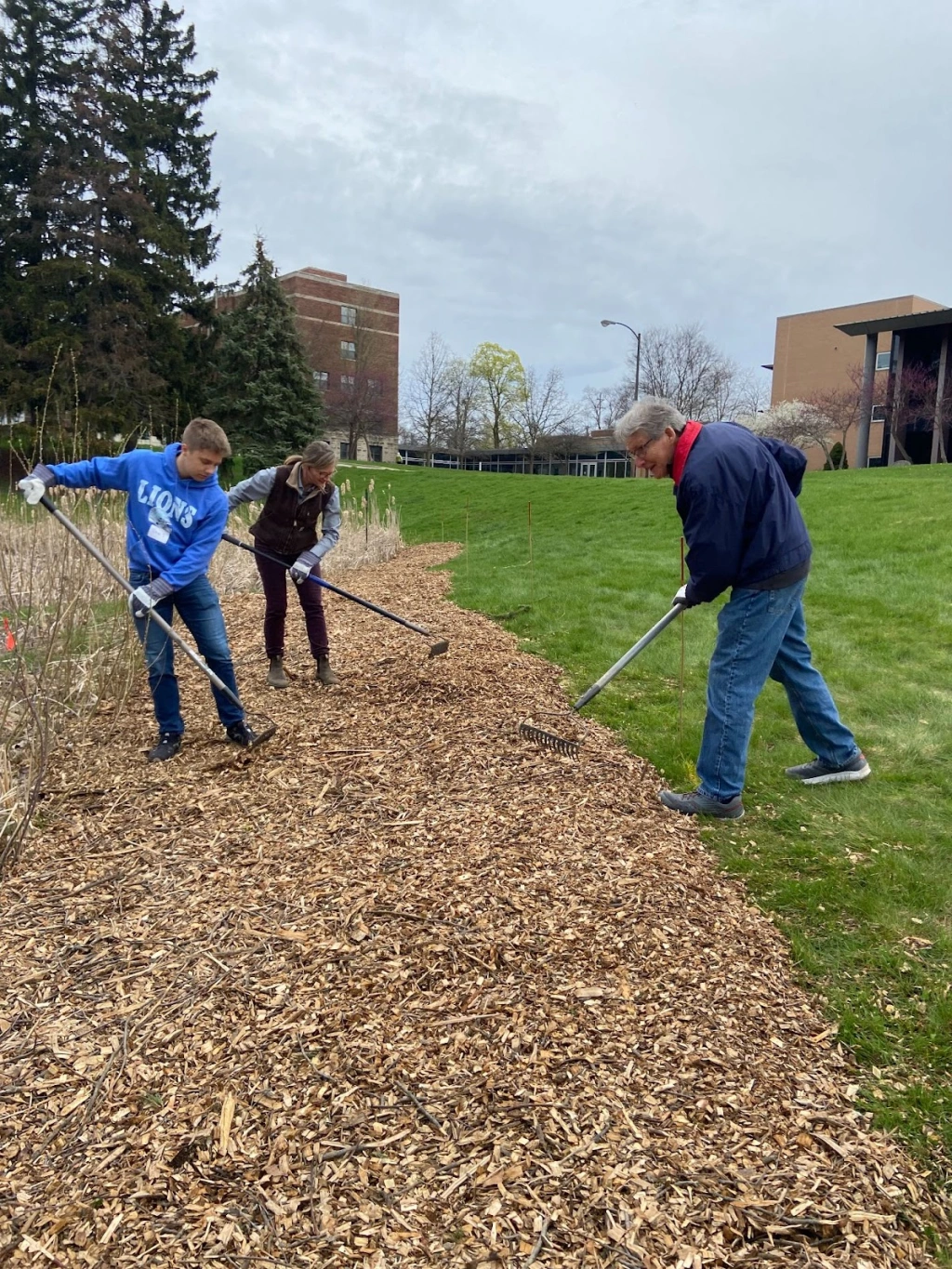
Story by Elizabeth Walztoni, News Intern
Photo courtesy of Jessica Bowen
Jessica Bowen is not the first person who has tried to bring goats to a college campus, but she may be working the hardest to do it. The director of the Center for Sustainability at Aquinas College is partnering with the Grand Rapids Urban Agriculture Committee to change city ordinances that currently prohibit a herd of 10 goats from visiting campus to clear invasive species and overgrown areas.
A similar program was successful at Western Michigan University in Kalamazoo — perhaps too successful, as it was ended over concerns by the union of landscape services employees that their jobs were being stolen. Eimer-Bowen and Aquinas College Grounds Manager Mike DeBoer both heard of that project in 2017 and thought it would suit Aquinas’ needs well.
The company under consideration, Munchers on Hooves, uses goats who have retired from 4-H programs and are therefore highly socialized. The goats are enclosed in special solar-powered electric fences, which are moved from one spot to another as the land is cleared. All in all, their visit to Aquinas would be no longer than several weeks in the summertime.
Bowen says that the idea fits well into the college’s sustainability mission and makes an appealing story for donors. Bringing goats to campus is more than just a novelty project, however.
According to DeBoer, the landscaping work necessary could not be completed without the animals. The department has four permanent employees for a 117-acre campus when they would ideally employ five to six; they lack the means necessary to clear overgrown areas while maintaining the rest of campus. DeBoer said it would take a massive volunteer effort to even begin such a project. The machinery used to remove undergrowth is so loud that it can only be used when classes are not in session; even then it can elicit noise complaints from neighbors. It also requires the use of fossil fuels.
Goats clear land with ease, their digestive systems kill the seeds of invasive species they eat and they run on comparatively clean energy, according to the Munchers on Hooves website.
“Do we want machinery and chemicals, or do we want animals?” DeBoer said.
DeBoer added that the way campus looks is about more than just aesthetics, although our Grounds department did win a national award in 2013 for its appearance. Many students make their college decision within their first minutes here; a well-maintained campus can be crucial from an admissions perspective.
What risks does the project present? The goats dislike dogs and will snort at them, and if the food runs out, the goats might start to scream. Aside from the “potential for shenanigans” from curious neighbors, that’s about it, according to Bowen. And the contract with Munchers on Hooves includes liability insurance.
The project was progressing steadily in the fall of 2017 with Bowen and Center for Sustainability intern Malory Maletic at the helm until they discovered the city ordinances standing in their way.
These Grand Rapids laws prohibit even temporary use of farm animals within its limits (with the exception of home chickens under specific circumstances). Neither are animals allowed within 100 feet of dwellings, drains, or waterways, which describes almost every area under consideration at Aquinas. While the city was generally in favor of the idea, they were unable to bend the rules, according to Bowen.
“Everyone knows this is a positive project,” she said, “so where’s the room for innovation?”
Efforts to make that room stopped and started throughout the next year, even including the idea that the ordinance could be sidestepped because the goats are considered to be lawn care equipment by the company rather than farm animals. Eventually Bowen was connected to Levi Gardner, founder of local farm Urban Roots and chair of the city’s newly formed Urban Agriculture Committee, with whom she partnered to change the ordinance. The proposed update would allow farm animals to remain within city limits for up to three months and will be voted on by the City Commission in June. Bowen feels optimistic, but acknowledges that at this point the project is largely out of her hands.
Even if the ordinance is voted down, however, she isn’t going to give up. She is willing to measure out the required 100-foot distance and get the goats on campus wherever possible. “What’s the alternative?” she asked.
About the Writer:
 Elizabeth Walztoni is a sophomore majoring in Geography with a minor in writing.
Elizabeth Walztoni is a sophomore majoring in Geography with a minor in writing.





Leave a comment